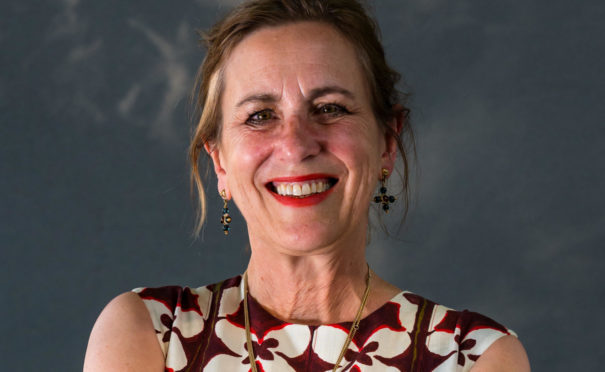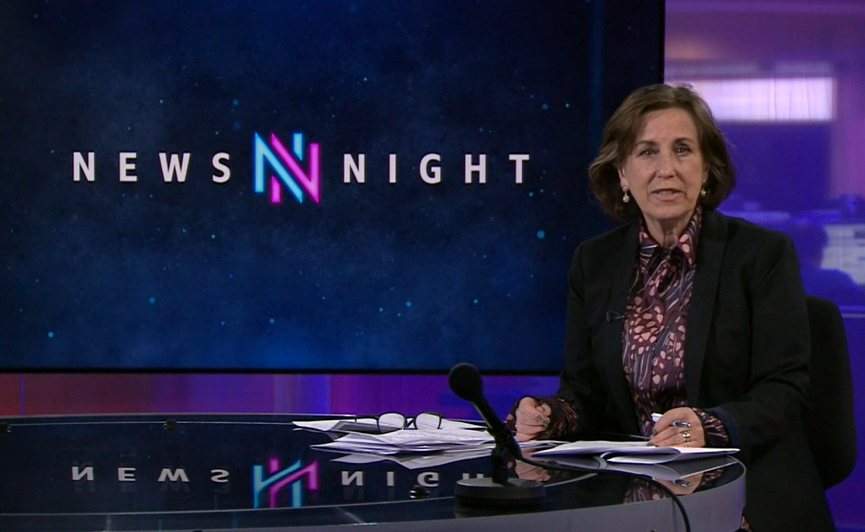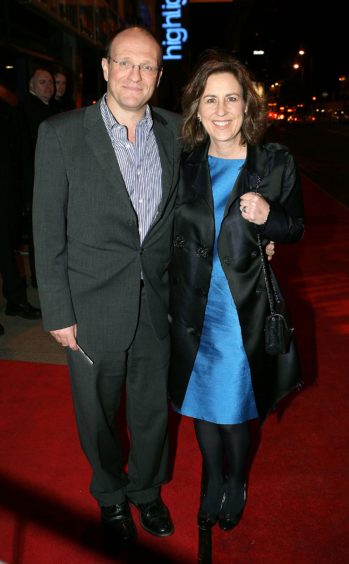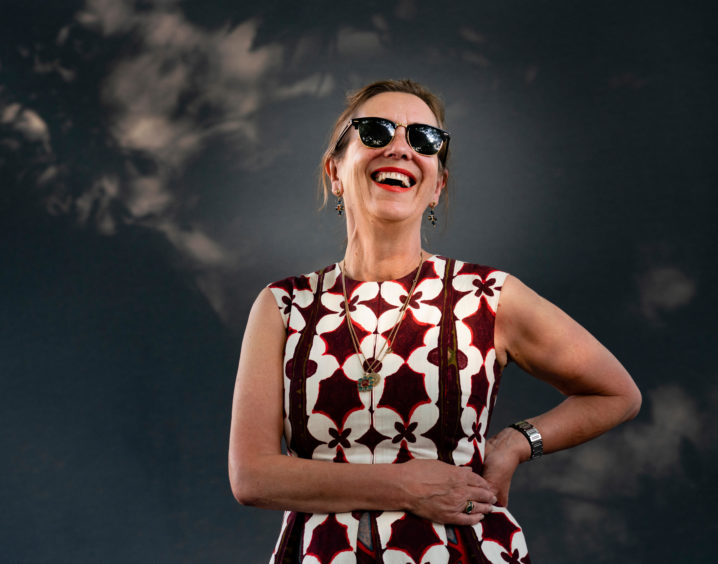
As one of the country’s most experienced broadcast journalists, Kirsty Wark is used to a bustling newsroom.
What she is perhaps not so used to in recent years is a bustling home, but lockdown changed that.
The Glasgow house she shares with husband Alan Clements, a television producer, has become a home office hub not just for them, but also their two grown-up children, Caitlin and James, who came home when the pandemic first struck.
“The house is full – there are five of us here, all working away,” she smiled. “My husband is running his media companies, with his staff all working from their homes.
“My daughter is usually in London, she’s a development researcher for Eon Entertainment, and my son runs a theatre company in New York, so he’s here doing some teaching, writing, doing courses and planning productions. We’re not sure when he’ll get back to America. And my daughter’s fiancee, who is a civil servant, is also working from here.
“I’m the one who is out and about the most. Sometimes I worked from Pacific Quay in Glasgow, but I was usually going up and down to London on the train. It was empty at first, but it’s getting busier again.
“I love the train. I can write, work, rest, prepare for Newsnight, and look out the window. It’s a peaceful time for me. I enjoy taking the sleeper down and then walking everywhere, to my apartment and on to the BBC. I’m less keen on taking the plane.”
Kirsty needs that peaceful time on the train, as her schedule remains packed. She is currently working on a major four-part documentary series that will reflect on the changing face of Scotland over the past 50 years.
“It looks at the massive changes – socially, culturally, events big and small – and the different way we now live,” explained Kirsty. “We’ll look at some of the lesser-known disputes of the ’80s, like the Lee Jeans factory sit-in, interviewing the leader and one of the younger women, who was only in her teens at the time of the dispute.
“We’re telling stories of well-known people with events that shaped Scotland – music, theatre, the industrialisation change.
“I grew up in Kilmarnock and it was the most beautiful town with handsome buildings and good industry. And then it was decided we needed a shopping centre and we should pedestrianise the main street, and one of the things the series will do is look at towns that were blighted by that.
“There were megastructures like the one at Cumbernauld, but we focus on Irvine, which was never properly finished. The Magnum was going to save the world, it was an extraordinary place when built, but we don’t necessarily want these Blade Runner-type shopping centres in our towns. I think we’ve realised this US import in the ’70s of having big shopping centres didn’t really suit Scottish towns.
“I think there has been a bigger push for community during Covid, and one of the things we look at is the decline in church-going. Churches have been turned into everything from tanning salons to cinemas, but some are being used as community centres. It’s my hope more of those churches that are closed can now be repurposed by the community.
“I went to a wonderful church in Portobello that’s been taken over by the community, who are doing all sorts of wonderful things. The buildings are such an architectural feature on our landscapes.”
The series was due to air in the autumn, but filming had to stop during lockdown and it will be screened early next year.
While Kirsty, 65, has been presenting Newsnight for 27 years, her working relationship with the BBC goes back further, joining in 1976 as a graduate researcher for Radio Scotland. Despite people’s habits changing in the way they access news, she believes the BBC remains at the forefront.
“I think having a diverse number of suppliers is fantastic, but we earn our right to be a very trusted broadcaster. The BBC is still the most-watched broadcaster, with people watching either on TV or online. Newsnight has broken a lot of Covid stories around care homes, domestic violence and the impact on exams, but it’s meat and drink to us, and I hope we can always rise to the challenge.”
While work continues on the Becoming Scotland series, another documentary Kirsty recently presented was The Trial Of Alex Salmond. Airing last month, it followed the court proceedings from day one until the former first minister’s acquittal in March. The broadcast received 900 complaints of bias against the former SNP leader and Alex Salmond is said to be considering legal action. But Kirsty has no concerns.
“Alex Salmond was found innocent, not guilty, there is no disputing that in any way,” she said. “What we were doing was giving background to the whole thing, and we did that fairly.”
Kirsty recently took over presenting duties on one of Radio 4’s best-loved programmes, The Reunion, which reunites groups of people who were intimately involved in moments of modern history. She replaced Sue MacGregor, who had been presenting the show since it began in 2003.
“I love The Reunion,” Kirsty said. “Sue and I have just had lunch – she established the series so well and she is such a good listener. I need to make sure I don’t do anything wrong with it. So far it’s been fantastic, we’ve had some great programmes.”
On Sunday, Kirsty took part in the Borders Book Festival, moved online like so many other festivals this year. She talked about her second novel, The House By The Loch, inspired by her family holidays to Loch Doon in Dumfries and Galloway.
“The book is inspired by an area I love very much,” she explained. “My father used to go fishing there, and while he’s not a character in the book, elements of fishing I saw as a child are. It forms a backdrop to this story of a family falling apart, and about families having secrets and how they can be a destructive force.
“There’s been a huge take-up on the Borders Book Festival events. Nothing beats having everyone together in a big tent listening to an exciting author, but this is better than not having anything at all.
“I’m on the board of Scottish Ballet and we’ve been talking about how we get people back into a space and make sure they can still enjoy it and performers can still perform. Everyone is working on different strategies.
“However, some extraordinary things have been done digitally during this period, the sort of things that might have been talked about and mulled over for a long time otherwise, but people have just gone ahead and done them.
“Going forward, if an author can’t make it from overseas, for example, they can be interviewed via a big screen in front of a festival audience, and people will be understanding of it.”
Kirsty chatted about her book as part of the Borders Book Festival, the event can be viewed at bordersbookfestival.org

Enjoy the convenience of having The Sunday Post delivered as a digital ePaper straight to your smartphone, tablet or computer.
Subscribe for only £5.49 a month and enjoy all the benefits of the printed paper as a digital replica.
Subscribe
 © Ross McDairmant/Shutterstock
© Ross McDairmant/Shutterstock © Iain Masterton/Alamy Live News
© Iain Masterton/Alamy Live News